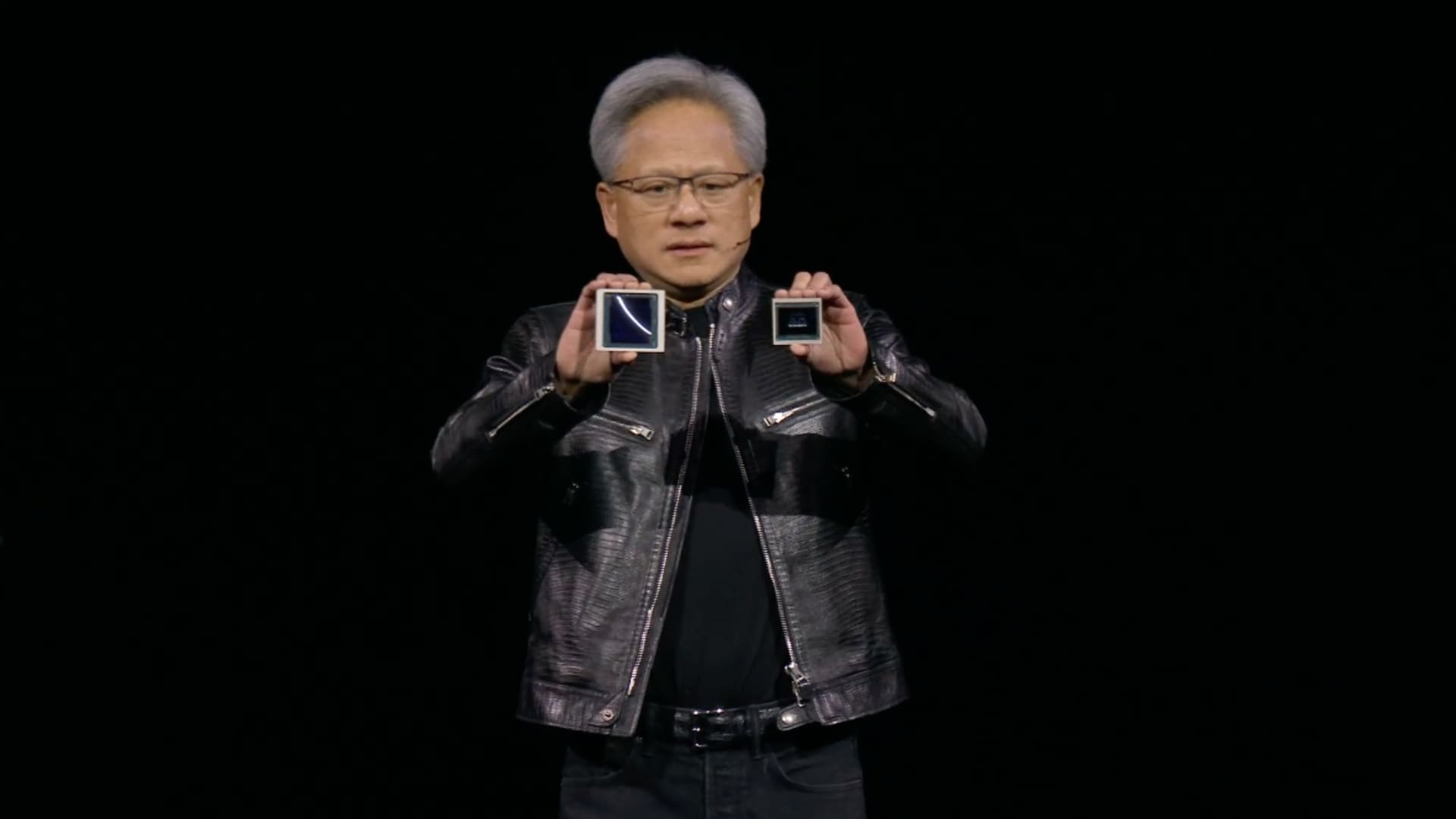Huawei's New AI Chip: A Challenger To Nvidia's Dominance?

Table of Contents
Huawei's AI Chip: Key Features and Specifications
Huawei's new AI chip boasts several innovative features designed to compete directly with Nvidia's offerings. Let's delve into its core capabilities:
Architectural Innovations
The chip's architecture is built around a highly efficient Neural Processing Unit (NPU) design. Specific details regarding the architecture may vary depending on the exact model, but key improvements over previous generations are expected in areas such as:
- Significantly increased NPU core count: Leading to improved compute performance for complex AI workloads.
- Enhanced memory bandwidth: Allowing for faster data transfer between the NPU and memory, crucial for training large AI models.
- Reduced power consumption: A critical factor in data centers and mobile applications.
Comparing this to Nvidia's leading chips, such as the A100 or H100, will require a detailed benchmark analysis. However, Huawei aims to compete on performance per watt, a key consideration for large-scale deployments. Key architectural innovations will be crucial in determining its success in this area. The specific details of the architecture, including the use of advanced memory technologies and interconnect designs, will play a vital role in determining its overall performance.
Performance Benchmarks and Testing
Independent benchmark tests and Huawei's own claims are needed to fully understand the chip's performance. We expect data showing performance in key AI tasks:
- Image recognition: Measuring frames per second (FPS) and accuracy.
- Natural language processing: Evaluating speed and accuracy of tasks like sentiment analysis and machine translation.
- Recommendation systems: Assessing the efficiency in handling large datasets and providing accurate recommendations.
Comparing these results to Nvidia's comparable chips, specifically considering inference speed (for deploying trained models) and training performance (for creating new models), will be critical in gauging its competitive edge. Throughput, or the rate at which the chip can process data, will also be a crucial benchmark for evaluating its overall efficiency.
Target Applications and Market Focus
Huawei is reportedly targeting various sectors with its new AI chip:
- Data center AI: Powering large-scale AI infrastructure for cloud computing.
- Autonomous driving: Providing the computational horsepower for real-time decision-making.
- Edge computing: Enabling AI processing closer to the data source, reducing latency.
- Mobile AI: Enhancing the AI capabilities of smartphones and other mobile devices.
The chip's advantages in these applications will depend on its performance metrics, power efficiency, and cost-effectiveness. Its success will depend heavily on its ability to cater to the specific needs of each sector.
Analyzing Nvidia's Current Market Position
Nvidia currently holds a dominant position in the AI chip market, largely due to:
Nvidia's Strengths and Market Share
- Established ecosystem: A vast developer community and extensive software support (CUDA) give Nvidia a significant advantage.
- High-performance GPUs: Their GPUs are widely considered the industry standard for deep learning.
- Large market share: Their considerable market dominance ensures continued investment and development.
Potential Vulnerabilities
Despite its dominance, Nvidia faces potential challenges:
- Increased competition: Huawei's entry, alongside other players, is intensifying competition.
- Supply chain risks: Global supply chain disruptions can impact the availability of Nvidia's chips.
- Technological limitations: Further advancements in AI may necessitate new architectures beyond current GPU designs.
Huawei's Strategic Positioning and Challenges
Huawei's new AI chip aims to compete by focusing on:
Competitive Advantages
- Price-performance ratio: Offering potentially competitive pricing compared to Nvidia's high-end chips.
- Energy efficiency: Aiming for superior power consumption for cost-effective large-scale deployments.
- Specialized AI features: Possibly focusing on specialized AI tasks where it can offer better performance in specific niches.
Obstacles to Overcome
However, significant hurdles remain for Huawei:
- Geopolitical risks and sanctions: These present substantial challenges to its global market access.
- Market entry barriers: Nvidia's established dominance creates a high barrier to entry.
- Building an ecosystem: Creating a comparable developer ecosystem and software support will take significant time and investment.
Conclusion: Huawei's AI Chip: A Real Challenger or Just a Contender?
Huawei's new AI chip showcases promising features and aims for strong performance. However, its success in challenging Nvidia's dominance depends heavily on overcoming several significant obstacles. While the chip's performance in benchmark tests will be crucial, the geopolitical landscape and the already established Nvidia ecosystem present considerable challenges. Ultimately, whether Huawei's AI chip becomes a true challenger or remains a strong contender will depend on its ability to deliver on its promises and navigate these complex realities.
Do you think Huawei's new AI chip can truly challenge Nvidia's dominance in the AI accelerator market? Share your thoughts in the comments below! Stay updated on the latest developments in the AI chip market by subscribing to our newsletter or following us on social media!

Featured Posts
-
 Cassidy Hutchinson Memoir Details Of Her Jan 6 Testimony Revealed
Apr 29, 2025
Cassidy Hutchinson Memoir Details Of Her Jan 6 Testimony Revealed
Apr 29, 2025 -
 Chicago Office Market Meltdown The Rise Of Zombie Buildings
Apr 29, 2025
Chicago Office Market Meltdown The Rise Of Zombie Buildings
Apr 29, 2025 -
 Ohio Train Derailment Aftermath Prolonged Toxic Chemical Presence In Buildings
Apr 29, 2025
Ohio Train Derailment Aftermath Prolonged Toxic Chemical Presence In Buildings
Apr 29, 2025 -
 Treasury Market Movements A Review Of April 8th
Apr 29, 2025
Treasury Market Movements A Review Of April 8th
Apr 29, 2025 -
 Open Ai And The Ftc A Deep Dive Into The Ongoing Investigation
Apr 29, 2025
Open Ai And The Ftc A Deep Dive Into The Ongoing Investigation
Apr 29, 2025
Latest Posts
-
 New Music Willie Nelsons Oh What A Beautiful World Album Details
Apr 29, 2025
New Music Willie Nelsons Oh What A Beautiful World Album Details
Apr 29, 2025 -
 Willie Nelson Documentary Leading Austin News Story
Apr 29, 2025
Willie Nelson Documentary Leading Austin News Story
Apr 29, 2025 -
 Quick Facts About Willie Nelson Life Career And Legacy
Apr 29, 2025
Quick Facts About Willie Nelson Life Career And Legacy
Apr 29, 2025 -
 Willie Nelson Announces New Album Oh What A Beautiful World
Apr 29, 2025
Willie Nelson Announces New Album Oh What A Beautiful World
Apr 29, 2025 -
 Willie Nelson Documentary Tops Austins Weekly News
Apr 29, 2025
Willie Nelson Documentary Tops Austins Weekly News
Apr 29, 2025
